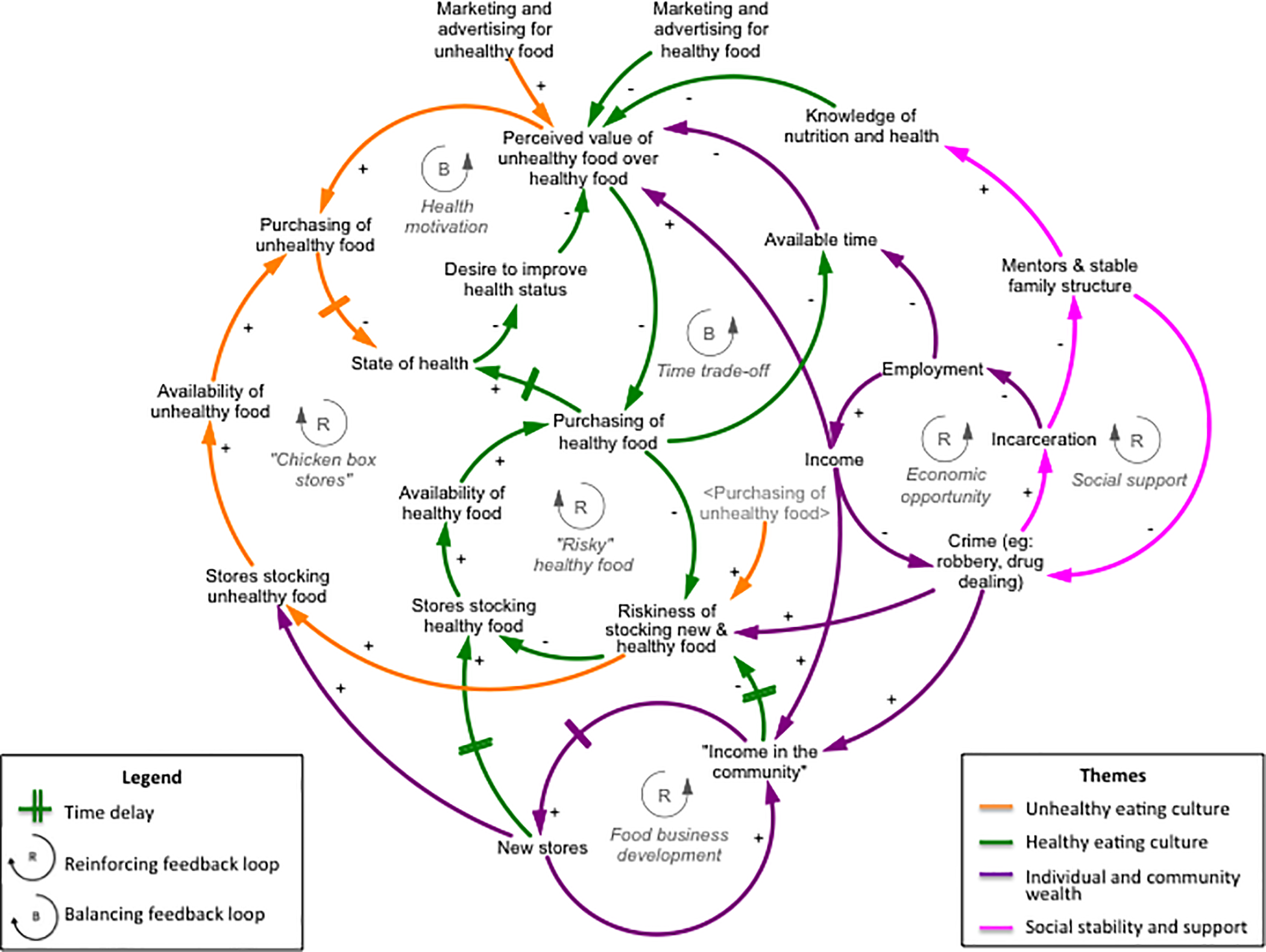By Sydney Jones
Access to healthy food is shaped by complex relationships with urban food systems that require a deeper understanding of many moving parts. One aspect of urban food systems that remains misunderstood is the wide range of contributors to healthy food availability, beyond the common reference to consumer demand.
In a recent study published in PLOS One, Dr. Yeeli Mui and colleagues present the application of a novel approach, called community-based system dynamics, to unpack the causal links and feedback relationships that influence access to healthy foods in an urban food environment. The study unpacks the experiences of community members in the 7th District of Central West Baltimore, Maryland, where there is limited availability of fresh fruits, vegetables, and other healthful foods. In partnership with a local urban farming organization and an expert consultant in group model building from the Social System Design Lab at Washington University in St. Louis, Dr. Mui convened a group model building workshop with diverse local food system stakeholders to engage in a multi-step process of mapping participants’ perspectives related to healthy food access in Central West Baltimore. Collectively, workshop participants highlighted many opportunities to improve the urban food system (see figure). One prominent theme, “economic opportunity,” draws attention to links to incarceration, which disproportionately burdens communities of color, and disrupts ties with mentors and stable family structures needed to provide young people with life skills, life goals, and awareness about one’s own health. Findings from this research draw on critical lived experiences to provide a new framework on the array of social, economic, and environmental mechanisms driving healthy food access, as well as potential levers to advance urban food systems.
Read the full article here: https://journals.plos.org/plosone/article?id=10.1371/journal.pone.0216985

